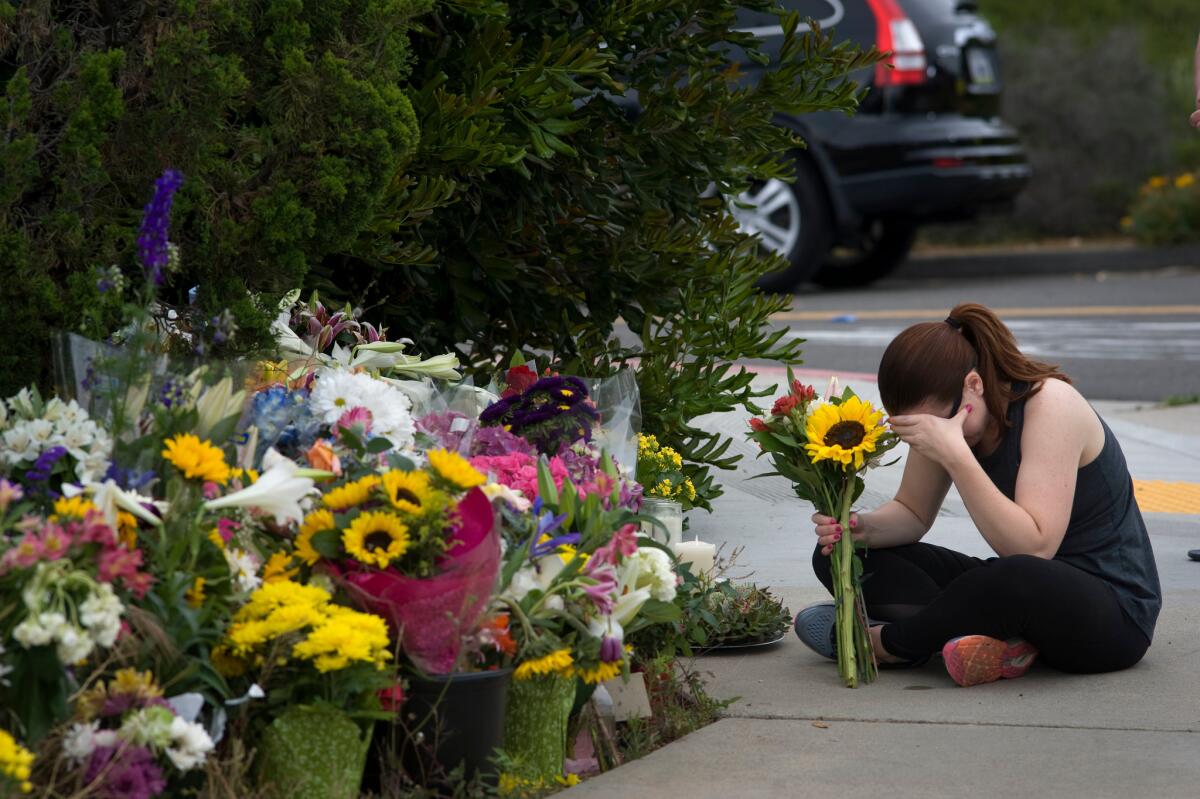Column: I’ve gotten hate mail my whole career. But I’m shocked by the anti-Semitic rants from Trump supporters lately

- Share via
Maybe I’m getting soft, but I found these two emails very disturbing.
“Dumb ass liberal Jew...Hope you get Chinese virus and suffer for lying to people...Really do.......”
For the record:
1:09 p.m. May 19, 2020An earlier version of this story said that Auschwitz was liberated by U.S. troops. It was Soviet troops that liberated the concentration camp.
And this one:
“Keep your mouth shut kike. You always seem to out yourselves. All throughout history.”
I’ve been in the newspaper business for a long time. So I’m no stranger to angry, profanity-filled letters and the occasional death threat. But when I went back to writing recently after many years as an editor, it was the anti-Semitic emails that I found particularly disconcerting. (The Anti-Defamation League reported last week that 2019 was a year of “unprecedented anti-Semitic activity” in the United States, so perhaps I shouldn’t have been surprised. But I was.)
The emails came in response to a column in which I criticized President Trump, calling him “vindictive” and “irresponsible” and “lacking in empathy” and “averse to complex thinking,” among other things. I can see where his supporters might’ve gotten angry. And they did. One called me a “libturd.” Others called me “pathetic,” “embarrassing” and “FOS.”
But while those emails were crass, the anti-Semitic ones were chilling. All the more so since the column had nothing to do with Jews or Christians or religion or ethnicity.
Now, I don’t have any particular reason to believe Trump shares all the views of his nuttiest supporters. But like many people, I believe he encourages them. He fans the flames of intolerance and division, and caters too often to a bigoted crowd. In campaigning, he relies on dog whistles, such as the TV spot he aired in 2016 that flashed pictures of George Soros, Lloyd Blankfein and other Jews while Trump in a voice-over assailed “global special interests” and “those who control the levers of power in Washington.” That’s a dangerous game to play, and a cynical one.
Nevertheless, I was all set to chalk the rabid emails up to the loony fringe and ignore them. Until a few days later when I was intrigued to find in my in-box a proclamation issued by the White House on the occasion of ”Jewish-American heritage month, 2020.”
The statement, attributed to Trump himself, talked about the long history of Jews in the U.S. It noted that Jews had experienced oppression, violence and bigotry. It cited the “myriad ways they enrich our country.” It noted “our rejection of anti-Semitic bigotry, and our disdain for malicious attacks of hatred.” It called special attention to the 2019 synagogue shooting in Poway, Calif.
Whether Trump really had anything to do with the proclamation, I have no idea. Frankly, it didn’t sound much like him. His comments on the subject have generally been bizarre assertions like “I am the least anti-Semitic person that you’ve ever seen in your entire life,” or vague, rambling statements like this one: “As far as Jewish people — so many friends, a daughter who happens to be here right now, a son-in-law, and three beautiful grandchildren.”
But the proclamation on Jewish American Heritage Month was in such dramatic contrast with the anti-Semitic notes I received in response to my column that I wondered what the writers would make of it. So I dug out the old emails, forwarded the proclamation to the authors and waited to see what would happen. Since they were apparently Trump’s defenders, I thought perhaps his words would have some influence with them.
Wrong. Teachable moment unsuccessful. I heard back from one of them, who still hopes the virus will get me and who notes that Jews are “known fir their ability to cheat out and screw others that were not Jews.” We exchanged a number of notes, but I can report that no headway was made.
I don’t mean to blow any of this out of proportion. I recognize there are plenty of people and groups in the United States for whom the ongoing effects of racial and religious prejudice are far more burdensome than they are for me. And that a handful of lunatics calling me names is not the second Holocaust.
I also recognize that we’re living in a bitter and polarized time, and that the rage reflected in those emails is not directed only at Jews. I can’t imagine my correspondents aren’t also riled up about African Americans and other people of color, as well as immigrants, gay and transgender people.
Still, it is demoralizing and distressing that anti-Semitism is back in vogue, at least among certain groups, just in time for the 75th anniversary of the liberation of Auschwitz by Soviet troops fighting Nazism in Europe.
It’s a little like when you read that cases of measles, a disease that was declared to have been eliminated in the United States in 2000, are growing disturbingly quickly — because we have forgotten what we learned in a previous generation and have failed to remain vigilant.
The United States prides itself on tolerance and opposition to bigotry — and, with some enormous exceptions, it has generally moved over the years in the direction of expanded rights and greater justice for all. That’s why my mother and her parents came to the United States rather than elsewhere when they fled Hitler’s Europe in the 1930s. As a child, I was taught that anti-Semitism was not a problem in America. It’s disheartening to think that, without vigilance, it could come back, like the measles.
More to Read
A cure for the common opinion
Get thought-provoking perspectives with our weekly newsletter.
You may occasionally receive promotional content from the Los Angeles Times.











